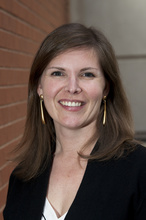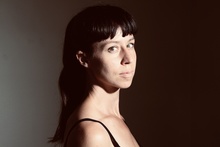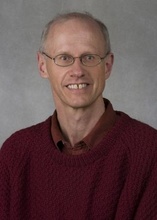Three College of Liberal Arts and Sciences faculty members recently received awards to support their respective research projects during the next academic year.
Jenna Supp-Montgomerie, religious studies and communication studies; Stephanie Miracle, dance; and Jonathan Wilcox, English each received a Developmental Studies Hybridoma Bank (DSHB) Humanities Scholar Award.
These awards are granted to tenured CLAS faculty for an approved research project within the humanities, including the digital humanities. The funding can be used for professional travel, materials, or other defined research needs.
Learn more about each funded project.
Visiting Upper Mississippi River port towns
Jenna Supp-Montgomerie, associate professor in the Departments of Religious Studies and Communication Studies, will use her $2,250 award to research and write the fourth chapter of her book, Deep Religion: Water, Wilderness, and Infrastructure.
The book focuses on the religious history that shapes how water embodies both infrastructure and wilderness. The fourth chapter will examine the Upper Mississippi region in Iowa, Illinois, and Wisconsin.

“This grant enables me to conduct research on-site at places where international cultures grew along the Mississippi, even as it was imagined to be a deeply national river,” Supp-Montgomerie said.
Supp-Montgomerie will travel to key Upper Mississippi port towns, including Dubuque, McGregor, and Davenport in Iowa; Prairie du Chien, WI; and Rock Island Arsenal, IL. At each site, she will study museums, material installations of infrastructure development, and the residual effects of cosmopolitan river cultures.
Supp-Montgomerie added she is interested in the religious diversity and international relations that have shaped the country’s heartland in the Upper Midwest and at the core of national cultures.
“The Upper Mississippi region is vital to how we understand ‘America’— it is a place where imaginaries of America are rooted in a strange combination of shipping infrastructure, national stories, and cosmopolitan cultures, all cultivated by religion,” Supp-Montgomerie said. “I want to understand how religion has shaped that tangled web.”
Bringing a unique dance experience to France
Stephanie Miracle, assistant professor in the Department of Dance, will use her $3,000 award toward her project FAKERS CLUB, which is a dance theater ensemble that creates live-cinema performances in public settings.
Since 2015, Miracle and her ensemble have created “live-cinema episodes” in train stations, abandoned school buildings, and bowling alleys across Germany, Italy, and Turkey. The project questions how dance and absurd narrative can activate public space to rediscover sense of place, Miracle said.

The "Lost and Found Episodes” project will bring this work to the south of France. The international production will offer an uncommon dance experience for French audiences, as well as advance Miracle’s research.
“Not only does this award give validation to the project and the research I am doing, but it also significantly adds to the work’s feasibility and success,” Miracle said.
Miracle said the grant dollars will help cover the cost of high-quality archival documentation for the project. A videographer will document the behind-the-scenes process and the public performances.
“This video material will be critical in expanding the visibility and research of the project,” Miracle said.
Viewing early medieval manuscripts in England
Jonathan Wilcox, professor in the Department of English, will use his $3,000 award for professional travel to England to view early medieval manuscripts. He will visit Oxford, Cambridge, and London, in addition to Taunton in Somerset, where he will examine Old English homilies that were newly re-discovered 20 years ago.
The travel will build on his research for an in-progress book, Cocky Scribes: Writerly Posturing in Early Medieval English Manuscripts. Wilcox has seen digital reproductions of the manuscripts but viewing them in person will help identify marginal notes or marks, erasure, and signs of correction.
“I felt delighted to receive this support since viewing the manuscripts in the flesh is crucial for the kind of close reading of signs of creation and marks of use that are central to my next research project,” Wilcox said.

This will also help Wilcox identify what can and can’t be discovered through available digital reproductions.
“My monograph will both elucidate a playful and often overlooked community of scribes from early medieval England and also make a contribution to the ongoing theoretical discussions about the utility and limitations of digital facsimiles,” Wilcox said.